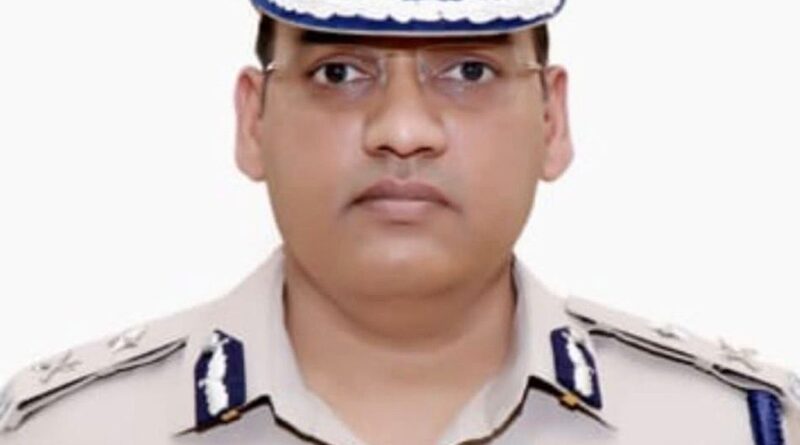Haryana IPS Officer Y Puran Kumar Found Dead from Gunshot; Known for Battling Caste Discrimination and Bureaucratic Wrongs
Vocal critic of administrative favoritism and SC underrepresentation in police hierarchy leaves behind legacy of unyielding advocacy amid shocking suicide
CHANDIGARH, Oct 7: In a tragic turn that has stunned the bureaucratic circles of Haryana and beyond, senior IPS officer Y Puran Kumar, a 52-year-old champion against systemic biases, was discovered lifeless in his Sector-11 home here on Tuesday, succumbing to a self-inflicted gunshot wound. The 2001-batch Haryana cadre officer, whose career was marked by fearless calls for equity in promotions, postings, and resource allocation, leaves a void in the ranks of those who dared to question the status quo—especially when it came to the marginalization of Scheduled Caste personnel in law enforcement.
Kumar, an engineering graduate hailing from Andhra Pradesh, had risen through the force with stints in key districts like Ambala and Kurukshetra, later helming major ranges in Ambala and Rohtak as Inspector General of Police. His portfolio extended to vital wings such as Home Guards, Telecommunications, and the state’s Dial-112 emergency response initiative. With retirement slated for 2033, he was at the peak of a distinguished service that blended operational prowess with a sharp eye for institutional injustices. Yet, it was his off-duty persistence—through letters, representations, and legal challenges—that etched him as a thorn in the side of complacent administrations.
The past few years painted a picture of escalating friction between Kumar and Haryana’s power corridors. In April 2024, he made headlines by rejecting his assigned official vehicle—a dated Honda City—and formally petitioned then-Chief Secretary T.V.S.N. Prasad, decrying the “arbitrary and biased” distribution of cars among IPS peers. As IGP (Telecommunications), he argued that while others cruised in fresh Toyota Innovas, his entitlement was deliberately downgraded, underscoring a pattern of subtle slights against junior batches and underrepresented groups.
His activism peaked in late 2024 when he penned a pointed missive to Chief Minister Nayab Singh Saini, flagging “unlawful” promotions for 1991, 1996, 1997, and 2005-batch officers. Citing violations of Union Ministry of Home Affairs protocols—overridden merely by Finance Department nods—Kumar demanded parity for his 2001 cohort, including delayed elevations to Deputy Inspector General ranks, pay refixes, and outstanding arrears. “This isn’t oversight; it’s engineered exclusion,” he wrote, explicitly linking the inaction to his batch’s heavy SC composition and alleging that even routine files in the Home Department were routed through legal remoras to stall progress.
Caste, Kumar repeatedly asserted, was the invisible handcuff binding his ascent. He spotlighted how 1997-batch colleagues enjoyed preemptive pay fixes and bonus increments—later paused but emblematic of favoritism—while his own career milestones languished. In a barrage of five complaints filed between October and December 2024 against a high-ranking IAS official, he invoked charges of “targeted harassment and public shaming,” including one under the SC/ST (Prevention of Atrocities) Act. When the government countered with a February 2024 probe panel of three retired IAS judges, Kumar swiftly contested its legitimacy, branding it a “stacked deck” devoid of statutory rigor, SC voices, or mandated police oversight, in line with Supreme Court mandates.
The nadir came in March 2023 with his transfer to IGP (Home Guards), a role he publicly dismantled in an October 2023 note to Chief Secretary Sanjeev Kaushal. Armed with the state’s own gradation lists and the 2017 IPS Cadre Strength Regulations, Kumar revealed the post as a phantom—never formally instituted, as affirmed in Punjab and Haryana High Court submissions that year. With genuine IGP vacancies glaringly open, he charged the move as a calculated ploy to “degrade and demoralize” him over seven grueling months, a spectacle designed to erode his standing.
Nor did Kumar’s vigilance stop at personal battles. In 2022, he spearheaded a crackdown on unauthorized temple construction within Sirsa’s Police Lines, unearthing lapses in oversight that rippled into a full departmental inquiry. Such interventions, blending moral clarity with procedural zeal, earned him quiet admirers but vocal adversaries in a system wary of internal whistleblowers.
In a poignant irony, Kumar’s wife, Amneet P. Kumar, a prominent IAS officer, was continents away in Japan, heading an official entourage under Chief Minister Saini himself, when the news broke.




